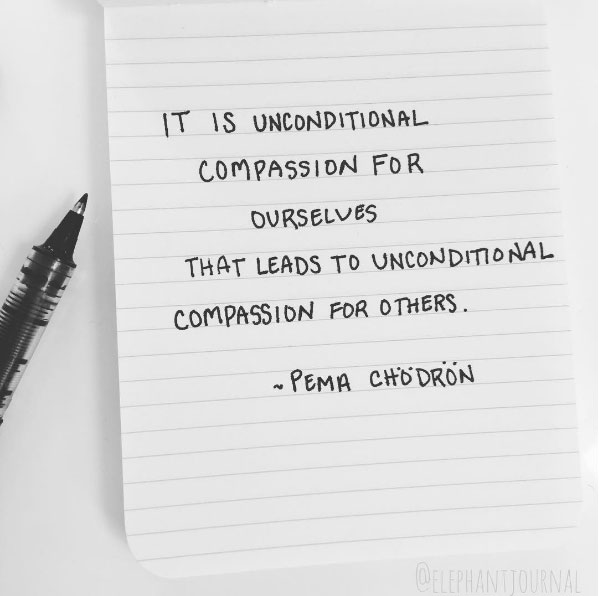
Meditation has been my great passion ever since I was introduced to it through the philosophy/tradition known as Kriya Yoga in the year 2000. My love of the practice has led me to study many different methods of meditation such as Mantra, Visualization, Zazen, Vipassana, as well as mindfulness techniques.
As I reflect back, I’m quite humbled by the fact that throughout those years I’ve sat with and learned from some well-known and well-respected teachers, as well as a Japanese Grandmaster. But the highlight of my journey occurred last month when I was blessed with the opportunity to spend time with mindfulness teacher, Buddhist monk and scholar, author, co-founder of The Insight Meditation Society, and founder of Spirit Rock Retreat Center—Jack Kornfield. (That’s one more check off my bucket list.)
One evening after a meditation, Mr. Kornfield said something which has remained with me ever since:
“The purpose of meditation and the purpose of any spiritual practice is not to perfect ourselves, but to perfect our love.”
While this is not a novel statement, it has had a profound effect on me. So much so, that now every night I reflect upon my day’s meditations, my thoughts, my words, my actions and deeds to see if, in fact, my love has become a little more perfected than it was the day before.
Was I a little more patient?
Was I kinder?
More compassionate?
I say this is not a novel statement because it is similar to a favorite quote of mine by Jiddu Krishnamurti, who, defining meditation once said: “The flowering of love is meditation.”
And the truth is that the act of perfecting our love is the great message to be found at the core of most teachings from many backgrounds, cultures, and traditions.
Many of us in the United States might be most familiar with Jesus’ commandment to “love one another.” In this statement, Jesus wasn’t just telling his followers to love those in their circle. He wasn’t telling his disciples to love only the other disciples. He isn’t commanding us to only love just our family and friends. In fact, prior to this statement Jesus says, “If you love only those who love you—what reward do you have? If you love only your brothers—what good are you really doing? Therefore, I say—love your enemies.”
This is Jesus’ call to the perfection of our love.
With this statement, Jesus is trying to push us out of our comfort zone. It’s easy to love those who love us back. And so ultimately, Jesus is asking us to kick our love up a notch and break through any limiting barriers we may have built within ourselves.
As I have said however, this message of a perfected love comes from all traditions. Approximately 500 years prior to the birth of Jesus, the Buddha said, “Let boundless love extend to all beings.” Nearly 800 years ago, Rumi, the Persian Sufi Mystic wrote, “See through the eyes of compassion! Speak with the language of love!” And more recently, Indian (Hindu) teachers and gurus such as Sai Baba and Neem Karoli Baba spoke the messages “love all, serve all” and “love everyone, serve everyone.”
But, how do we do it?
One step is to move from the head into the heart. We shift from a mind-centered life into a heart-centered life. For, it’s not the head that loves—it’s the heart that loves.
The mind compares, judges and defines. The mind looks out at the world and tries to categorize and separate what it sees. While the heart just wants to give of itself and share what it has unconditionally. The heart doesn’t ask who the person is or question if they are worthy of love. The heart simply wants to love.
However, because of past hurt and experiences we may have work to do. We may have to chip away at the walls we’ve built around our hearts so that we can allow ourselves to fully love others. And while this sounds easy, breaking down barriers and perfecting our love to the point that we love all people is definitely not. There are some people we may find it very difficult to cultivate a love for in our lives.
The main obstacle is often due to the notion that we think loving others means we must have warm, affectionate feelings for everyone in the world. And this really isn’t true. What love for others means is, we simply wish for all beings the same things we wish for ourselves. All that we are seeking in our own lives—happiness, peace and love—is what we wish for others. And if someone were in trouble, regardless of whether we have affectionate feelings or not, we would lend a helping hand.
This is what perfected love is all about, but this type of love has to be cultivated. And it can be cultivated because we all have a seed of this type of love within us. It might be hard to see in some people, and may even be hard to find within ourselves, but it’s there within us all.
However, it’s undeveloped. It’s there in potential. The same way the potential of a tall and mighty oak tree lies dormant within a tiny acorn.
But, will a seed just grow on its own?
It won’t.
A seed must be placed in the right soil; it must be given the right amount of water; it must also be given the necessary light. In essence, a seed must be nurtured and cared for. Only then will the inner potential begin to break through and blossom.
The same is true of the seed of love within us. John Lennon once sang, “love is a flower, you have to let it grow.” And so, we all have some gardening to do.
We grow our seed or flower of love by placing it in the soil of a mind made pure by right thoughts. We water it with the purity of right words, and we feed it through the light of right deeds. But, we allow the seed to blossom to its full potential by continually nurturing it through practices such as meditation and yoga because these activities help us generate a love and acceptance for oneself.
Accepting and loving who we are is so important to the perfection of love because until one has a healthy love for self, we can’t fully love others.
So, let us be mindful of all our practices and remember Mr. Kornfield’s advice to not perform them for our own perfection, but rather for the perfection of our love. With this intention, we have the ability to transform ourselves and thereby transform the world around us in wonderful ways.
Good luck on the journey.
And may all your days be filled with an abundance of happiness and peace!
~
Author: Anthony Profeta
Image: elephant journal/Instagram
Editor: Molly Murphy


 Share on bsky
Share on bsky




Read 0 comments and reply